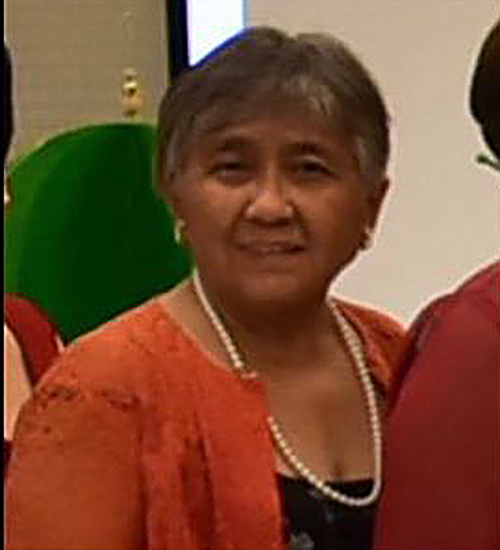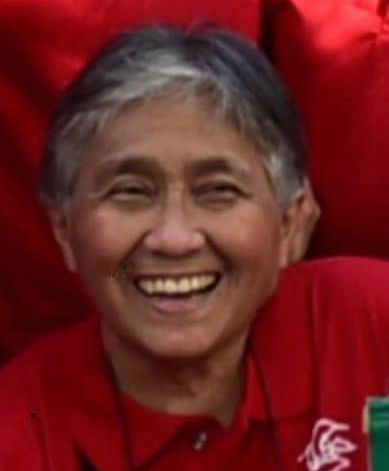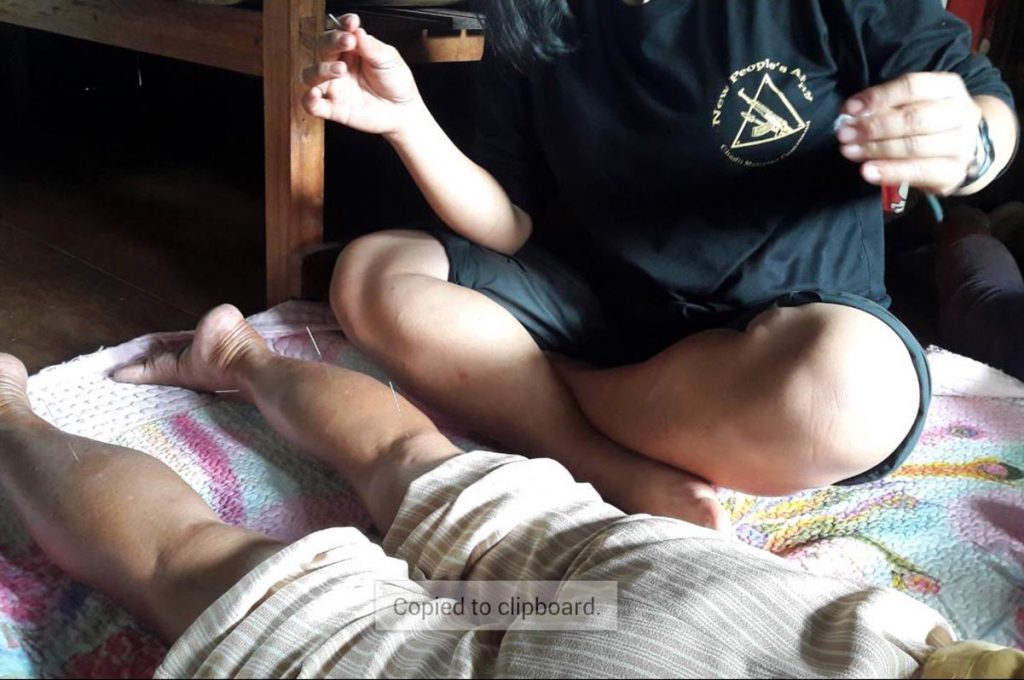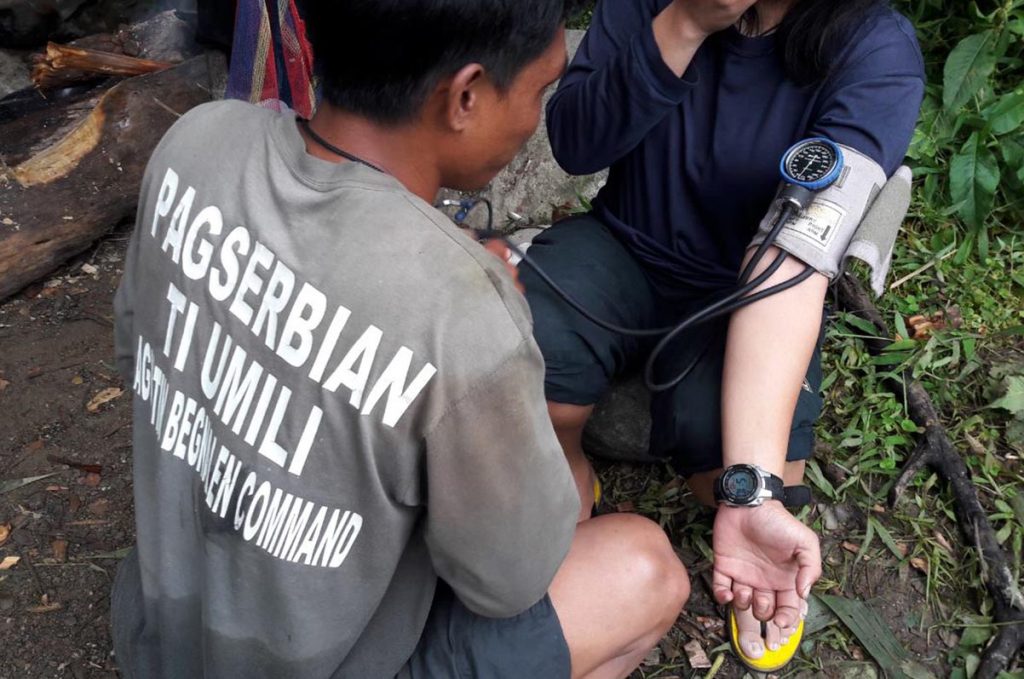‘Lou Tangco, revolutionary doctor and people’s martyr’
By Raymund B. Villanueva
Classmates of the doctor killed in a combined military and police raid in Baguio City last March 13 paid tribute to their colleague whose death they said is a great loss to the country. Members of the University of the Philippines College of Medicine (UPCM) Class of 1977 mourned the death of Dr. Ma. Lourdes “Lou” Dineros Tangco and said that while the light in her eyes had been extinguished and her laughter silenced, they will always remember the late physician’s selflessness.
“The UPCM Class of 1977 knew Lou as a principled and brave doctor committed to her ideals with the strength and tenacity to fight for them, but with the open-mindedness to accept others as they were,” the group said in a tribute.
Tangco was gunned down along with Julius Giron, a stalwart of the Communist Party of the Philippines (CPP), who was ill with acute pancreatitis. The doctor was reportedly providing medical care to the high-ranking rebel. The military alleged that Tangco, Giron and their companion Arvie Alarcon Reyes fought back that led to their deaths.
The CPP however said the three were unarmed and were asleep when the raiding team arrived and were shot at close range. “Claims made by the military and police that they were about to serve an arrest warrant are outright lies. It was a liquidation operation, a massacre, carried out at 3 a.m. with the clear aim of assassinating Giron and eliminating all witnesses,” the CPP said.
A product of an affluent family

LouTang, as her classmates fondly called her, came from a family of physicians. She was the daughter of Gorgonia Dineros and the former member of the UP Board of Regents, Dr. Ambrosio Tangco. She was the niece of former UPCM Anatomy professor Dr. Oscar Tangco and cardiologist Dr. Francisco Tangco, the tribute reads. She had a sister who was a graduate of the college while Dr. LouTang’s own son is also an UPCM alumnus.
“Though a product of an affluent family, Lou had always been down to earth and felt that her heart belonged to the needy majority,” the UPCM Class of 1977 said.
Tangco, her classmates said, was a true product of the First Quarter Storm of 1970. But while she was “grim and determined” in practicing her principles, she was not beyond exchanging light banter with classmates.
“She will always be remembered for her loud and infectious laughter. She exuded joyfulness and sincerity, as her circle of relatives, classmates, friends and colleagues will attest,” they said.
Her friend and fellow UPCM alumna, Bagong Alyansang Makabayan chairperson Dr. Carol P. Araullo remembers her fried similarly. “She was easy to get along well, although over-eager (makulit) at times. She was well liked and could relate well to people from all walks of life,” Araullo told Kodao.
Araullo recalled that Tangco never exhibited any of the trappings of her comfortable, even privileged, upbringing, being a daughter of a well-respected and successful orthopedic surgeon who also served as a member of the UP Board of Regents at one point. She dressed simply, enjoyed simple pleasures and was easy-going. “She carried a certain self-assured composure that did not come from being an “anak ng Diyos” (child of God) or what we called the scion of doctors who were also professors at the UP College of Medicine-Philippine General Hospital. She was not one to compare herself with others but she just did her thing whether it was surviving the rigors of medical school and 36 to 48-hour hospital duties at PGH or going full-time into primary health care/community medicine in the far-flung areas of the Cordilleras after graduation,” Araullo said.
A selfless doctor
After graduation, Tangco went to the then single province of Kalinga-Apayao through the Rural Health Physicians Program of the government and served as a parish doctor in a far flung municipality, reachable only after a half day’s hike through mountain trails. Since then, she went on to serve communities in other parts of the Cordillera, and later all over the country, her classmates revealed.
Araullo added that Tangco enthusiastically shared funny, unforgettable stories anecdotes about her life as a doctor to the barrios, a rural physician with the Kalinga people. “She immersed herself in their world: she ate what they ate, slept in their homes, wore their native clothing, learned their language. She was more than a doctor, she was a teacher, an organizer and a beloved friend,” Araullo said.
For serving the medical needs of underserved areas, Tangco was given the outstanding alumna award by her high school alma mater, Maryknoll College.
In Class 77’s 25th anniversary yearbook, Tangco’s son described her as “somewhat a personification of the Oblation – an offering of one’s self to a higher cause.” The Oblation is a statue in each UP campus symbolizing selfless offering of oneself to the country.
In the same yearbook, Tangco wrote that, even as a child, it bothered her that doctors were leaving the Philippines when it was clear there was a need for more of them in the country. “I said then that when, and if, I become a doctor, I would not leave. I would stay in PGH [to] help improve the way it was run, and be here for my people.”
Along the way, Tangco said she found that staying in PGH was not enough. “There were too many places where health needs are too great to ignore, where basic education is wanting, where food is not enough and water is not always potable. Many do not own the land they are tilling. So, to the provinces I went. Through the Rural Health Physicians Program, I chose to go to Kalinga-Apayao,” she wrote.
She added that it did not take long for her to realize that the traditional doctor’s role would only end up in frustration. “People had to learn that health is not a privilege but a right and a responsibility. They must be equipped to take on this responsibility. However, I knew I could not do this alone. I found other doctors and health workers doing similar work, together we helped each other develop the community-based health programs,” she narrated.
There was a time when Tangco said she saw herself as a surgeon. But somehow all that paled in comparison to the need that stared her in the face. “So there I was, transformed into a literacy/numeracy educator, community organizer, counselor, adviser, health educator, doctor,” she narrated.
Her white coat and the red banner

Tangco’s transformation became complete when she realized that even with more fellow doctors doing pioneering work in rural communities, they would not be able to defeat the forces that keep people poor and unhealthy. She also saw with her own eyes many social injustices that compel the people to fight back.
“Dr. Tangco witnessed this in the struggle of the tribes of Kalinga and the Mountain Province, against the Chico River Dam Project being imposed on them by the US-Marcos dictatorship in the seventies,” the Mabakayang Samahang Pangkalusugan (MSP)-Cordillera in a statement said. MSP is the underground group of medical workers allied with the National Democratic Front of the Philippines. Not long after, the group added, “she heeded the challenge to join the revolutionary struggle.”
MSP said that one of Tangco’s primary tasks when she went underground was the training of NPA medics from peasant, worker, and peti-bourgeoisie class origins, most of whom had never attended medical or nursing school. She trained them to become doctors to the masses,” MSP said. Tangco tempered her revolutionary work and skills in the Cordillera, Cagayan Valley and Mindanao, it added.
“She was forged by simple living and arduous struggle. She gave up the immaculately white coat worn in the hospital and the titles’ Doctor’ and ‘Ma’am’,” the statement said. She was also “active in other aspects of Party (CPP) and NPA work” and became known as “Ka (Kasama/Comrade) Del” and “Ka Morrie”.
“She was often an instructor of various Party courses. She led the Regional Medical Staff as its Secretary. She became a member of the Regional Party Committees, where she was assigned. There was a period when she worked as a trade union organizer,” MSP said.

Not a combatant
UPCM alumnus (Class of 74) and fellow activist Dr. Romeo Quijano told Kodao that Tangco could not have been armed when killed, along with Giron and their aide, however.
Quijano said that Tangco told her she was strict in prohibiting her rebel-patients from bringing along their guns while they were under her medical care. “What I learned was that Dr. Lou brought her patient to Baguio City to be given better medical treatment. It would have been out of character if she violated her own policy that she strictly adhered to,” Quijano said.
Tangco and Quijano remained close friends, even if he was three years ahead of her at UPCM and she had been all over many far-flung communities of the country throughout the decades. But what cemented their friendship further was when Tangco helped him organize the International Conference on Pesticides and the Media in Makilala, North Cotabato in 1997. The event, sponsored by the Pesticide Action Network-Asia Pacific (PANAP), saw Tangco display her full mastery of the people’s right to health and helped convinced journalists from many countries about the dangers posed by pesticides. Quijano revealed that so impressed was PANAP’s officers that they have since supported the farmers’ struggles against pesticide-using corporations that endanger people’s health around their plantations.
“In my view, the event would not have been as successful without Dr. Lou’s help,” Quijano said. He added that Tangco was instrumental in strengthening community and peoples organizations in Mindanao and Luzon as well as workers’ unions.
Always busy with her organizing work, Tangco still found time to attend UPCM alumni events, sometimes with her doctor-son. She even represented her class in association meetings.
Quijano recalled the last time she saw Tangco was during his wife’s birthday in 2018. “She was happy mingling with fellow UPCM alumni and, as always, her infectious laugh rang above the din of the well-attended party. “I regret that we were not able to talk much because of the number of well-wishers who attended,” Quijano said.
Quijano revealed he was shocked when he learned of his friend’s death and incredulous at military and news reports that the three put up a fight. “Who would serve a search warrant at three o’clock in the morning when the subjects were most probably asleep. That’s an old canard by the military,” Quijano said.
Quijano, one of the country’s top toxicologist, revealed it crossed his mind that his friend may die a violent death in the hands of the military because of the dangerous life she lived. He nonetheless demanded justice for his friend.
AFP demeans Tangco with video

Araullo, like Quijano, was equally shocked upon hearing how their friend died. “There is a photo of a bloodied woman lying prone with a gun at her back accompanying the news report attributed to the AFP,” she said. The photos released by the AFP suggest the narrative that the three chose to suicidally exchange fire with the raiders. “Only an independent investigation into the massacre of these three can provide the facts and circumstances that can lead to the truth of their demise,” she said.
Adding insult to injury, the AFP came out with a video of Tangco’s remains being airlifted by the military and turned over to her relatives, Araullo pointed out. In the video, the military claimed it gave Tangco the chance to peaceably surrender but she refused and instead resisted arrest, thus her untimely demise which the military purports to regret.
“I happen to know that the family had to resort to asking assistance from the AFP for Lou’s remains to be brought to Manila from Baguio because of the impending lockdown of the National Capital Region on March 15. The family was constrained to accept the AFP’s condition that the ‘Left’ not be allowed to ‘politicize’ her death which I took to mean there should be no memorials or tributes organized by fellow activists during her wake,” Araullo revealed.
She said she finds it not only ironic but the height of opportunism that the AFP produced the video with its propaganda narrative that Tangco was not a victim of human rights violation but someone whom the AFP magnanimously tried to allow to surrender. Or that, even in death, the military again tried to make it appear that it magnanimously accorded Tangco a decent turn over to her family with uniformed men carrying her casket, Araullo fumed.
Araullo said the AFP likely does not realize that the woman they had “summarily executed” was a bona fide doctor with a high standing in the medical community and with influential relations and friends. She could have just been a statistic as far as they are concerned. “That is why they tried to pre-empt the story line of who she was, how she died and why,” she said.
Araullo also shared with Kodao a tweet from AFP Southern Luzon Commander Maj. Gen. Antonio Parlade boasting about Tangco’s death, alleging the victim was a combatant when she was killed. “Frothing-in-the-mouth anti-communist and rabid member of the NTF-ECLAC (National Task Force to End Local Communist Armed Conflict) General Parlade had the gall to tweet: ‘In times of crisis like COVID19, Ma Lourdes Dineros Tangco of the CPP Health Bureau chose to fight it out with government forces than be captured. She should be helping our affected communities. BUT NO her warped ideological belief tells her that her services is exclusive for NPAs.’” Such trash talk, Araullo said, only gives “fascists” such as Parlade more brownie points for another promotion in the AFP ladder and reveals the true character of the regime and reactionary system that he serves.
‘Hero to the masses’
Araullo said that the manner with which Tangco was mowed down by six merciless AFP bullets to her body only underscores her heroism and selflessness. “Dr. Lourdes Dineros Tangco will be forever remembered and hailed as a martyr and a hero to the masses that she selflessly and whole heartedly served as a revolutionary doctor,” Araullo said.
Quijano for his part said Tangco deserves to be honored for dedicating her life to the Filipino masses victimized by a rotten system. “She decisively overcame her privileged upbringing to live out the principles she wholeheartedly believed in. She never allowed herself to be drowned by privilege and opportunities easily available to UPCM graduates. She showed how it was to love the masses by being one of them,” Quijano said. “I consider it an honor to be one of her closest friends,” he added.
Tangco’s classmates are equally proud of their friend. “The UPCM Class of 1977 mourns the loss of a beloved and active member of the class. She touched the lives of many classmates who dearly love her and are deeply saddened by her untimely demise. Lou will be missed by the many poor and underserved communities she had been serving her entire life, and her passing is a great loss for our country,” they said,
Tangco’s son, in bidding her goodbye composed a poem for his beloved mother:
”She gave all that she could give so that the banner may advance
Though she has fallen, she had the courage to stand up and take her chance
Her blood joins the martyrs’ that water the paddies
So rice may grow golden and in the harvest time dance.” #
(With reports by Sherwin de Vera/Northern Dispatch)
